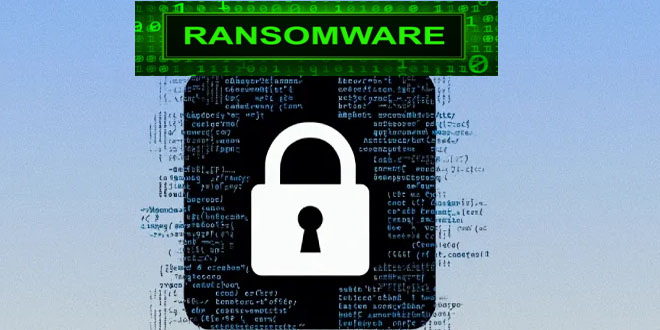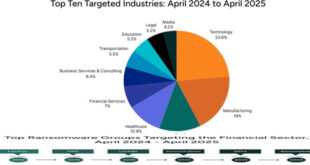Google this week announced that it has obtained a court order that helped it disrupt the CryptBot information stealer’s distribution.
Initially designed to harvest and exfiltrate sensitive information such as credentials, cryptocurrency wallets, and more, CryptBot was also seen distributing banking trojans.
By infosecbulletin
/ Friday , May 9 2025
Microsoft has fixed critical vulnerabilities in its core cloud services, including Azure Automation, Azure Storage, Azure DevOps, and Microsoft Power...
Read More
By infosecbulletin
/ Thursday , May 8 2025
The cyber threat landscape is rapidly changing, with a notable increase in ransomware activity in April 2025, driven by the...
Read More
By infosecbulletin
/ Thursday , May 8 2025
SonicWall has released patches for three security flaws in SMA 100 Secure Mobile Access appliances that could allow remote code...
Read More
By infosecbulletin
/ Thursday , May 8 2025
From April 2024 to April 2025, Flashpoint analysts noted that the financial sector was a major target for threat actors,...
Read More
By infosecbulletin
/ Thursday , May 8 2025
Cisco has issued a security advisory for a critical vulnerability in its IOS XE Software for Wireless LAN Controllers (WLCs)....
Read More
By infosecbulletin
/ Wednesday , May 7 2025
Attackers linked to the Play ransomware operation deployed a zero-day privilege escalation exploit during an attempted attack against an organization...
Read More
By infosecbulletin
/ Wednesday , May 7 2025
Hackers are exploiting an unauthenticated remote code execution vulnerability in the Samsung MagicINFO 9 Server to take control of devices...
Read More
By infosecbulletin
/ Tuesday , May 6 2025
CISA added the Langflow vulnerability, CVE-2025-3248 (CVSS score 9.8), to its Known Exploited Vulnerabilities catalog. Langflow is a popular tool...
Read More
By infosecbulletin
/ Tuesday , May 6 2025
Google has released its monthly Android security updates, addressing 46 vulnerabilities, including one that has been actively exploited. CVE-2025-27363 (CVSS...
Read More
By infosecbulletin
/ Tuesday , May 6 2025
The Cyber Security Club, representing the Department of Computer Science and Engineering at the University of Asia Pacific (UAP), has...
Read More
Over the past year alone, the malware infected roughly 670,000 computers, Google estimates.
The malware has been distributed via modified versions of legitimate software, including Google Earth Pro and Chrome, with recent CryptBot versions focusing heavily on the users of the Chrome browser.
According to Google, its investigation into the malware has identified several major CryptBot distributors based in Pakistan, which operate a global criminal enterprise.
To disrupt the operation, Google filed a legal complaint in the Southern District of New York, and a judge has granted the internet giant a temporary restraining order to act against the identified distributors.
“We’re targeting the distributors who are paid to spread malware broadly for users to download and install, which subsequently infects machines and steals user data. […] The legal complaint is based on a variety of claims, including computer fraud and abuse and trademark infringement,” Google says.
Armed with the fresh court order, Google can take down current and future domains used to distribute CryptBot, which is expected to impact the infostealer’s infection rates.
“This will slow new infections from occurring and decelerate the growth of CryptBot. Lawsuits have the effect of establishing both legal precedent and putting those profiting, and others who are in the same criminal ecosystem, under scrutiny,” the internet giant says.
 InfoSecBulletin Cybersecurity for mankind
InfoSecBulletin Cybersecurity for mankind















